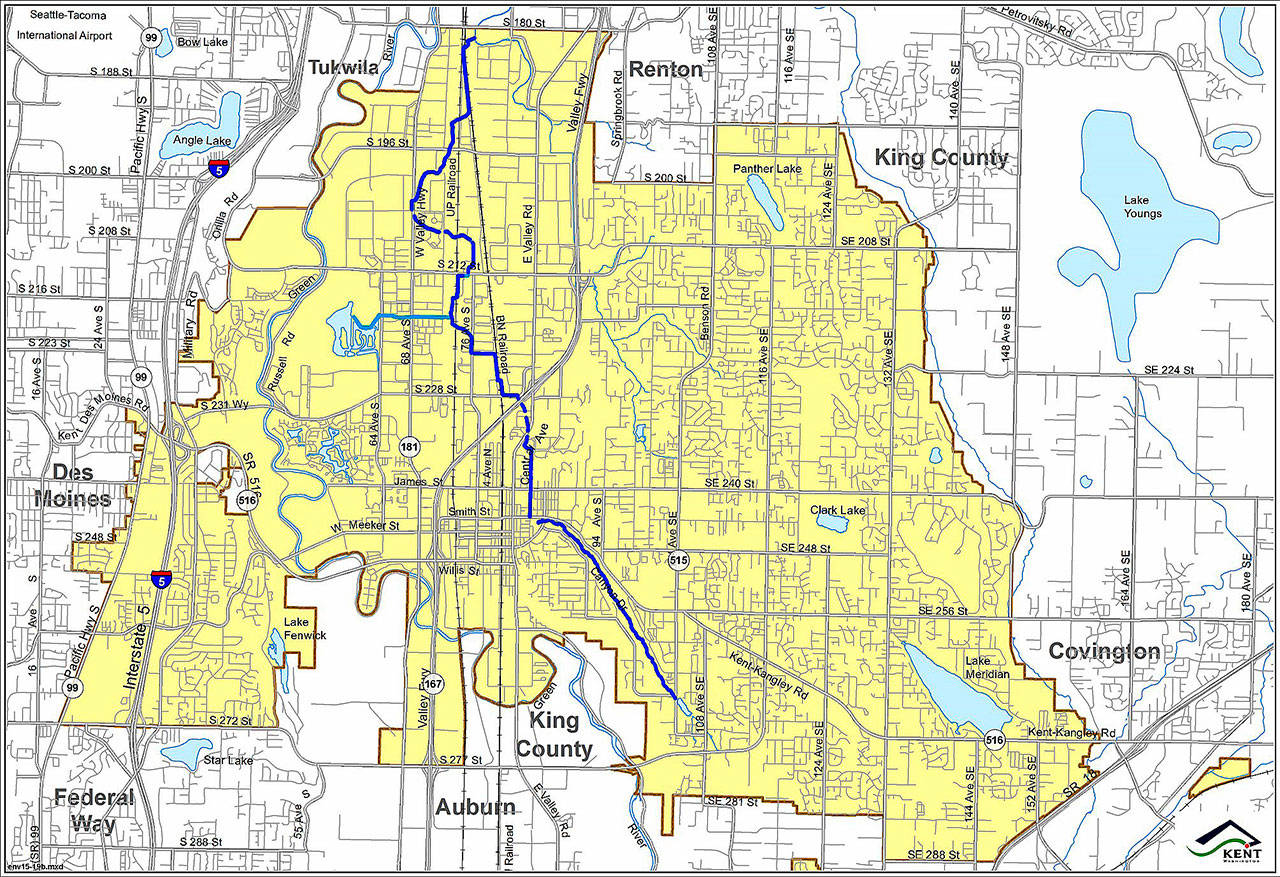It could cost the city of Kent an estimated $10 million to dredge Mill Creek in order to reduce flooding on 76th Avenue South and other streets along the sediment-clogged channel.
“It could exceed that,” City Public Works Director Tim LaPorte said about his estimate.
City officials hope to get state funds to help pay for the project but have not yet determined a payment plan.
The city has hired a consultant to compile an Environmental Impact Statement (EIS) with a draft statement expected to be done in March. A State Environmental Policy Act (SEPA) ruling could be issued in November 2018.
“There’s a chance we could start the dredging in the summer of 2019,” said Matt Knox, a city environmental engineering supervisor, at a May 16 City Council workshop.
Once the city obtains all the permits, the dredging would take about three months to clear sediment from a 3-mile stretch of Mill Creek from Earthworks Park to South 204th Street. Kent will need to get permits from the state Department of Fish and Wildlife, the U.S. Army Corps of Engineers and the state Department of Ecology.
Mill Creek runs through the heart of Kent’s industrial area and has caused flooding for years on James Street near Central Avenue, on Kennebeck Avenue and along 76th Avenue South.
The amount of sediment built up over time, and is greater than 5 feet of accumulation in some parts of the creek, Knox said. The large amount of sediment reduces the capacity of water to move through culverts, especially in a creek that slowly decreases elevation.
“From Smith Street there is just 20 feet of drop in 5 miles, so it’s almost dead flat,” Knox said. “Any impediment can cause some pretty big flooding.”
Dredging the creek should greatly reduce flooding.
“Unfortunately, there’s no one Band-Aid to fix everything,” Knox said. “But we are doing a lot of things, and this is one of the largest things we are doing.”
When the dredging starts, crews will pull sediment off the bottom of the channel. Crews will set up a 25-foot work zone for excavators to remove the sediment and dump trucks to haul it away. Crews also will temporarily pump water out of the creek in the work area and remove fish to keep them alive during the project.
Much of the sediment moved into the creek from Mill Creek Canyon during large flood events in 1990 and 1996, Knox said. After dredging, the city plans to set up about three areas along the creek where a Vactor truck can remove sediment on a regular basis to help keep the channel clear.
Kent will work with King County Drainage District No. 1 on the dredging. The Legislature established the districts in the early 1900s to oversee stormwater drainage. The district receives about $400,000 per year from property tax assessments and maintains 14 miles of creek in Kent and Renton. Crews remove brush along creek banks as well as downed logs or beaver dams.
The district used to dredge Mill Creek in the 1980s and 1990s but stopped when permitting became too difficult after wetlands became protected and later salmon were listed as an endangered species, LaPorte said.
“We will work with the drainage district because they own the property,” LaPorte said. “We would do the work through an interlocal agreement.”
City staff reduced flooding along James Street after installing a new pump station in October. But that was just one step. The dredging looms as a major project.
About 60 percent of the area that flows into Mill Creek is impervious surface – meaning parking lots, buildings and roadways – so water gets forced down the channel.
“It’s no surprise there is flooding with so much impervious surface in one of the largest warehouse distribution centers in the nation,” said Alex Murillo, a city environmental engineering supervisor. “From a business standpoint, in terms of jobs, economy that’s all great news. From a drainage standpoint, it really spells a lot of problems with all of that impervious surface.”
Talk to us
Please share your story tips by emailing editor@kentreporter.com.
To share your opinion for publication, submit a letter through our website https://www.kentreporter.com/submit-letter/. Include your name, address and daytime phone number. (We’ll only publish your name and hometown.) Please keep letters to 300 words or less.

